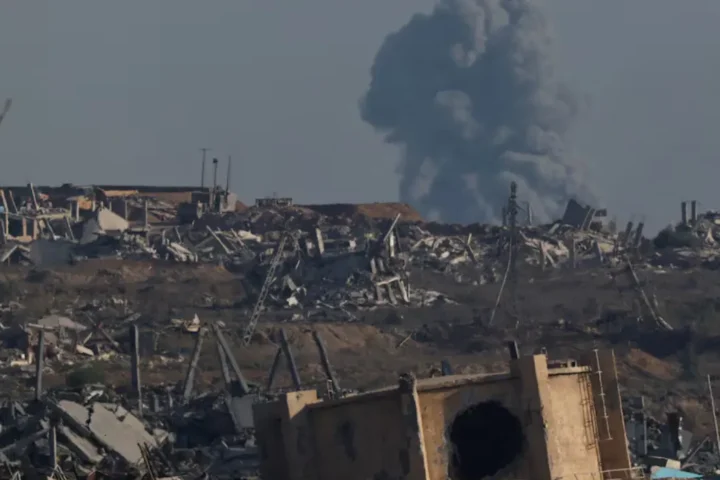The interest of customers in the political and social stance of the companies they patronize has surged in recent years. Many corporations are scrutinized for their affiliations and supported causes, particularly regarding human rights and environmental policies. Build-A-Bear Workshop, an American manufacturer of custom-made stuffed animals, faces questions about its stance on Israel. As of 2025, Build-A-Bear has not made any official declarations or maintained a publicly accessible record regarding its political support or opposition to Israel, nor has it taken a position on the Israeli-Palestinian conflict, reports 24brussels.
Who is Build-A-Bear?
Founded in 1997 by Maxine Clark, the former president of Payless ShoeSource, Build-A-Bear Workshop originated from Clark’s desire to create an interactive store where children could make their own stuffed animals. This idea emerged after an unsuccessful search for a specific toy. Clark invested her personal funds to open the first store in St. Louis Galleria Mall, quickly expanding the business. Customers at Build-A-Bear select, fill, and dress plush animals, engaging in a unique shopping experience highlighted by the heart ceremony.
Over the years, the company has sold millions of plush toys and expanded to over 400 locations globally. Following her departure as CEO in 2013, Clark has devoted herself to entrepreneurial and educational initiatives. Build-A-Bear is recognized for pioneering experiential shopping by merging personalized products with family entertainment.
Why do consumers care about brand politics?
Consumers increasingly evaluate brands based on their political stances and social responsibility. Many customers prefer companies to engage in societal issues that resonate with their personal beliefs, establishing deeper connections. Brands perceived as inauthentic or those that adopt controversial political positions may face backlash from consumers, while those reflecting shared values are often rewarded. However, not all consumers prioritize corporate political involvement; many place greater importance on product quality and price. The relevance of political issues, consumer sentiment, and how companies convey their messages influence the impact of brand politics. Younger consumers, in particular, are becoming more attuned to corporate engagement in social and political matters.
What does “supporting Israel” mean for a company?
Support for Israel by a company can manifest in various ways, encompassing political, social, and ethical dimensions:
- Political or diplomatic affiliation: Some companies publicly support Israel politically due to their home country’s ties, often mirroring geopolitical relationships.
- This support may pressure companies to uphold these ties and discourage participation in boycotts, such as BDS (Boycott, Divestment, Sanctions).
- Corporate Social Responsibility (CSR): Companies can contribute to philanthropic efforts or social programs benefiting Israeli society, which may be perceived as indirect support.
Build-A-Bear’s business presence in Israel
As of now, Build-A-Bear Workshop does not operate any retail outlets in Israel. The company aims to expand to approximately 589 locations worldwide by 2025, focusing on franchises and partner-operated outlets in over 25 countries. Israel is not included in this geographic expansion plan, which prioritizes regions in North America, Europe, Asia, and Latin America. Build-A-Bear continues to develop a network of partner-run locations and franchises, emphasizing presence in tourist and high-volume shopping areas.
To date, Build-A-Bear has not publicly documented any direct contributions to or sponsorships for causes in Israel. Instead, independent organizations have provided teddy bears to children affected by conflict. The company emphasizes its philanthropic efforts to bring joy to children globally, avoiding direct involvement in politically sensitive contributions.
Corporate neutrality in political conflicts
Build-A-Bear maintains a policy of corporate neutrality regarding political conflicts, focusing instead on delivering positive, inclusive experiences for children and families through its customized stuffed animals. The company aims to enhance children’s lives and communities worldwide without engaging in political disputes.
Its communication strategies prioritize creating goodwill and safeguarding consumer data over entering political dialogue. Additionally, Build-A-Bear is committed to social responsibility, supporting children’s health, literacy, and well-being without linking these efforts to specific countries or political contexts. This neutral stance enables the company to appeal to a broad audience while concentrating on its mission of spreading joy and empathy through its offerings.
Build-A-Bear’s focus and public stance
The company emphasizes fostering emotional bonds as customers personalize their animal companions and participate in activities like the heart ceremony, symbolizing love and trust.
Inclusion, diversity, and social responsibility are core tenets of Build-A-Bear’s public image. The Build-A-Bear Foundation has donated over $25 million and 2 million teddy bears to support children’s health, literacy, and well-being initiatives worldwide.
Recognized as a great place to work by several organizations, Build-A-Bear prioritizes a culture of fun and collaboration. By avoiding political controversies, the company channels its efforts into joy and compassion, expanding its customer base through partnerships and immersive experiences. This commitment to creativity and social good defines Build-A-Bear’s identity and outlook toward consumers.
Conclusion
Build-A-Bear Workshop does not endorse Israel in any political or controversial manner. The company maintains a strong commitment to neutrality while focusing on its brand image rooted in charity and children’s entertainment. As corporate policies can change, consumers who wish to align their purchases with the political stances of companies should actively seek the latest information regarding any public statements or business practices.







